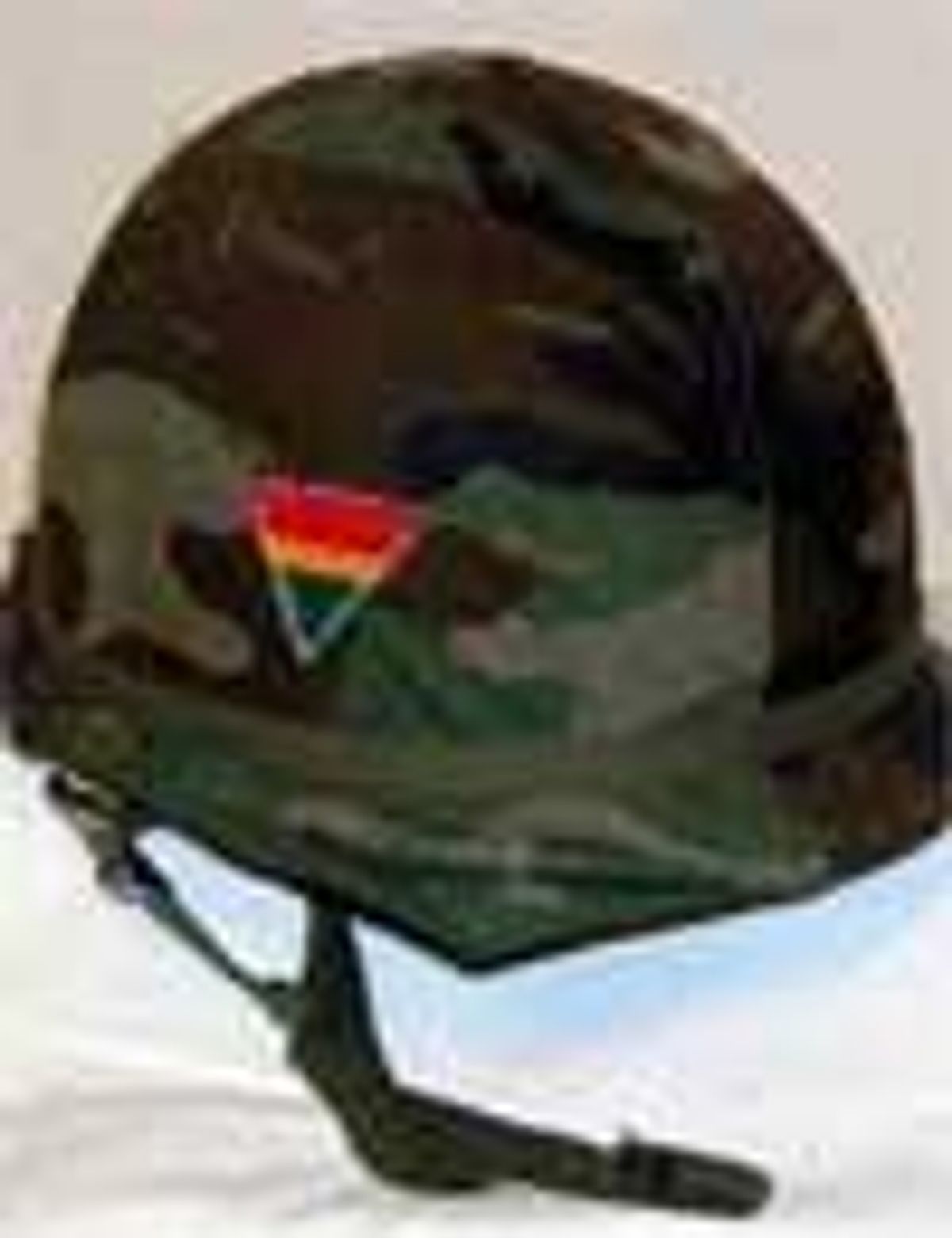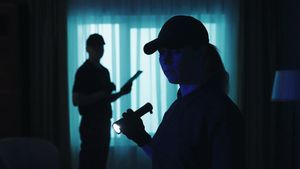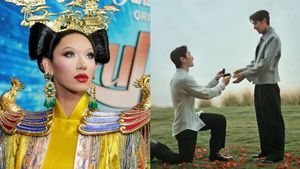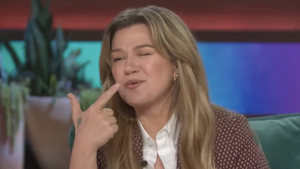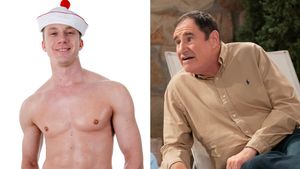Critics of the
military's "don't ask, don't tell" policy are gaining
new allies, including a few conservative congressmen and a
West Point professor, as they press on multiple fronts
to overturn the ban on out-of-the-closet gays and
lesbians in the armed forces.
As part of their strategy, opponents of the
policy are now highlighting the ongoing struggles of
Army and Marine recruiters. The Servicemembers Legal
Defense Network, an advocacy group for gay and lesbian
service personnel, says in a new report that many
highly trained specialists--including combat engineers
and linguists--are being discharged involuntarily
while the Pentagon "is facing extreme challenges in
recruiting and retaining troops."
On other fronts:
--A federal court hearing is scheduled in Boston
next month on a lawsuit by 12 former service members
challenging the 12-year-old policy.
--In Congress four Republicans--including
stalwart conservatives Wayne Gilchrest of Maryland and
Ileana Ros-Lehtinen of Florida--have joined 81
Democrats in cosponsoring a bill to repeal the policy.
Gilchrest, a former supporter of the ban, said he
changed his view partly out of respect for gay Marines
he served with in Vietnam and for his brother, who is gay.
--A U.S. Military Academy professor, Lt. Col.
Allen Bishop, wrote a column this spring in the
Army Times urging Congress to repeal the
ban. "I thought I'd get lots of hate mail and my colleagues
would walk on the other side of the hall, but there's
been none of that," he said Tuesday.
Still, neither the White House nor the Pentagon
has given any signal that they would drop their
long-standing support for the policy, implemented in
1993 under the Clinton administration. It prohibits the
military from inquiring about the sex lives of service
members but requires discharge of those who
acknowledge being gay.
On July 6 the Bush administration plans to ask a
federal court in Boston to dismiss a lawsuit
challenging the policy. The suit cites a 2003 Supreme
Court ruling that state laws criminalizing homosexual sex
were unconstitutional; the government says that
landmark decision has no bearing on "don't ask, don't tell."
More than 9,400 troops have been discharged
since the policy was implemented. Discharges peaked at
1,227 in 2001 and declined to 653 last year, a drop
that critics attribute to reluctance by war-zone commanders
to deprive their units of experienced gay and lesbian
personnel during difficult missions. "The services are
far less likely to discharge gays and lesbians serving
on the front lines," SLDN said in its report, released
Monday. It said those discharged last year included 41
health care professionals, 30 sonar and radar specialists,
20 combat engineers, 17 law enforcement agents, nine
language specialists, and seven biological-chemical
warfare specialists.
"The military continues to sacrifice national
security and military readiness in favor of simple
prejudice," said SLDN executive director C. Dixon
Osburn. "Americans do not care if the helicopter pilot
rescuing a wounded soldier or the medic treating that
soldier is gay." A Pentagon spokeswoman, Lt. Col.
Ellen Krenke, noted that dismissals under the policy
are only a small fraction of overall military
discharges. She also noted that the Defense Department could
change the policy only if Congress acted first.
Among the recently discharged soldiers is Robert
Stout of Utica, Ohio, who was wounded while serving in
Iraq and wanted to remain in the Army as an openly gay
soldier. He is scheduled to visit Washington this week to
lobby for repeal of the ban.
Gilchrest, the Maryland congressman, said he was
unsure how many of his fellow majority Republicans
were ready to join in seeking repeal, but he suggested
that the momentum is shifting in that direction. "When this
issue comes up, members who believe that gays shouldn't be
in the military are now more hesitant to voice their
opinion," Gilchrest said in a telephone interview
Tuesday. "Many of us who feel the other way have come
out of the closet, so to speak. A year ago I would have
been uncomfortable expressing my feelings."
Bishop, who teaches philosophy at West Point,
said he had been troubled for years by "don't ask,
don't tell" before deciding to write about it. "They
can be gay, but they can't practice being gay. They
can be here, but they can't tell you who they are--it seemed
pretty confusing to me," he told the Associated Press.
In his Army Times article, Bishop assailed the
policy as contradictory to fundamental American
principles. "Despite our government's claim of liberty
for all, we leave homosexuals out," he wrote. "If the
American military sees and is allowed to see itself as the
protector of some but not all Americans, democracy
fails." (AP)
